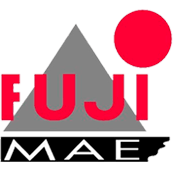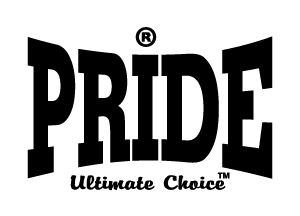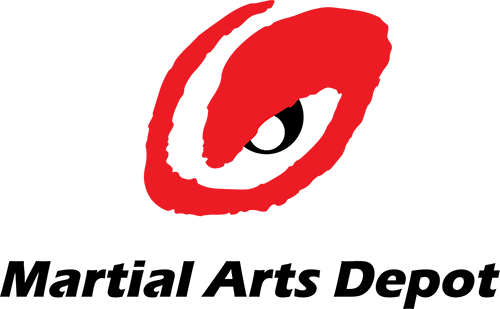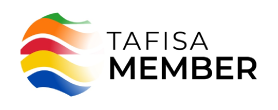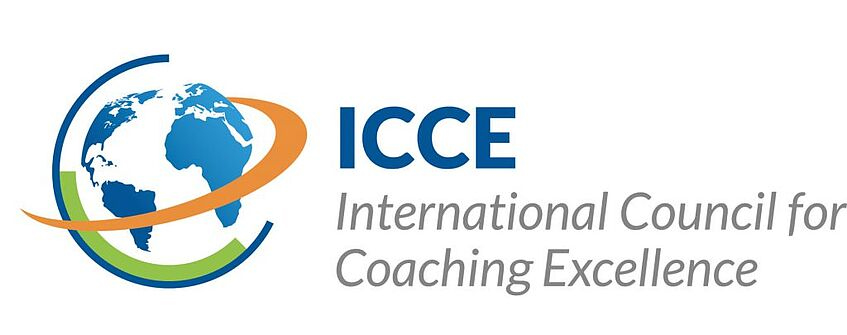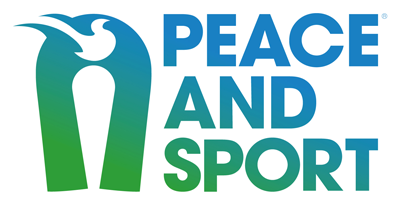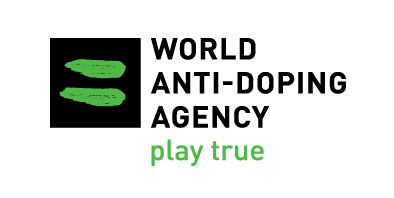
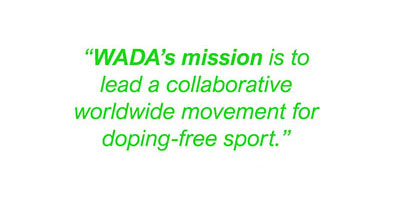
The ITF, through the Medical and Anti-doping Committee, works to help and educate the ITF community, both National Associations and instructors, in the standardization of medical and anti-doping practices.
It’s aim is to protect the spirit of Taekwon-Do from being undermined by doping and to establish an environment which influences doping-free behaviour among all participants. While a comprehensive testing programme plays a fundamental part as a deterrent and preventative measure against doping.
The ITF acknowledges that it has a duty to support its National Associations to provide athletes, coaches, umpires, referees and other members involved with the information and technical advice they need to make informed and responsible choices in compliance with the ITF and WADA anti-doping regulations.
Please find the Taekwon-Do ITF anti-doping regulations in the link below.
About Anti-Doping
Anti-doping programs seek to preserve what is intrinsically valuable about sport. This intrinsic value is often referred to as “the spirit of sport”. It is the essence of Olympism, the pursuit of human excellence through the dedicated perfection of each person’s natural talents.
It is how we play true.
The spirit of sport is the celebration of the human spirit, body and mind, and is reflected in values we find in and through sport, including:
- Ethics, fair play and honesty
- Health
- Excellence in performance
- Character and education
- Fun and joy
- Teamwork
- Dedication and commitment
- Respect for rules and laws
- Respect for self and other participants
- Courage
- Community and solidarity
Doping is fundamentally contrary to the spirit of sport.
What is doping?
Doping is defined as the occurrence of one or more of the following Anti-Doping Rule Violations (ADRVs):
- Presence of a prohibited substance in an athlete’s sample
- Use or attempted use of a prohibited substance or method
- Refusing to submit to sample collection after being notified
- Failure to file athlete whereabouts information and missed tests
- Tampering with any part of the doping control process
- Possession of a prohibited substance or method
- Trafficking a prohibited substance or method
- Administering or attempting to administer a prohibited substance or method to an athlete
- Complicity in an ADRV
- Prohibited association with athlete support personnel who has engaged in doping
Prohibited List
The Prohibited List identifies substances and methods prohibited in-competition, at all times (i.e. in- and out-of-competition) and in particular sports. Substances and methods are classified by categories (e.g. steroids, stimulants, masking agents). The list is updated annually following an extensive consultation process facilitated by WADA.
It is each athlete’s responsibility to ensure that no prohibited substance enters his/her body and that no prohibited method is used.

WADA official page of prohibited list
WADA 2024 prohibited list monitoring program
WADA 2024 Summary of Major Modifications and Explanatory Notes
Before taking any medication, please make sure to check with your prescribing physician that it does not contain a prohibited substance.
Please note that:
- Some substances are prohibited at any time and some are only prohibited “in-competition” i.e. on match day or within 24 hours of a match; and
- Under the principle of Strict Liability, players are solely responsible for any prohibited substance found in their system whether there was an intention to cheat or not.
Medication check
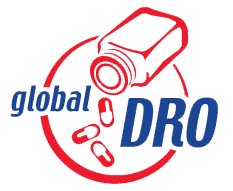
In case you or your athlete is taking medication, please check if your medication is allowed by your national anti-doping agency (NADA).
https://www.globaldro.com/Home
The medication check is also available as app for Android and iOS.
Therapeutic Use Exemption (TUE)

In case you or your athlete is taking a prohibited substance for medical reasons the athlete needs a valid Therapeutic Use Exemption (TUE). Further information on TUE can be found on the WADA website.
For application of a TUE, please fill in the form and contact our TUE physicians via [email protected]. For other questions regarding TUE you may directly ask our Medical & Anti-doping Committee ([email protected]).
Anti-doping e-Learning
The WADA Anti-doping e-Learning platform ADeL offers access to all topics related to clean sport and anti-doping. It offers courses for athletes, coaches, doctors, administrators and anyone interested in learning more about anti-doping and protecting the values of clean sport.
More information on ADeL and its different courses is available on the WADA website.
Sanctions
| Year | Country | ADRV | Substance | Sanctions | Download Decision |
|---|---|---|---|---|---|
| 2023 | Romania | n/a | n/a | 3 months | n/a |
Athletes’, Athlete Support Personnel’s and other groups’ rights and responsibilities under the Code
Rights and Responsibilities Under the World Anti-Doping Code
Rights and Responsibilities
Athletes, Athlete Support Personnel and other groups who are subject to anti-doping rules all have rights and responsibilities under the World Anti-Doping Code. Part Three of the Code outlines these for each stakeholder in the anti-doping system.
It is especially important that athletes and Athlete Support Personnel know and understand Code Art. 21 (Additional Roles and Responsibilities of Athletes and Other Persons), particularly Art. 21.1 (Roles and Responsibilities of Athletes), Art. 21.2 (Roles and Responsibilities of Athlete Support Personnel) and Art. 21.3 (Roles and Responsibilities of Other Persons Subject to the Code).
Athletes’ Rights
This section presents a summary of the key athlete rights. It is important that both athletes and Athlete Support Personnel know and understand these.
Ensuring that athletes are aware of their rights and these are respected is vital to the success of clean sport. Athlete rights exist throughout the Code and International Standards and they include:
• Equality of opportunity
• Equitable and Fair Testing programs
• Medical treatment and protection of health rights
• Right to justice
• Right to accountability
• Whistle-blower rights
• Right to education
• Right to data protection
• Rights to compensation
• Protected Persons Rights
• Rights during a Sample Collection Session
• Right to B sample analysis
• Other rights and freedoms not affected
• Application and standing
The Athletes’ Anti-Doping Rights Act sets out these rights and responsibilities. For more information, you can refer directly to the document here: Athletes’ Anti-Doping Rights Act.
Athletes’ Responsibilities
It is equally important that athletes are aware of their anti-doping responsibilities.
Athlete Support Personnel should also familiarise themselves with these in order to be able to support their athletes. These include:
• Knowing and following World Squash Federation Anti-Doping Rules and any other applicable Anti-Doping Rules
• Taking full responsibility for what you ingest – make sure that no prohibited substance enters your body and that no prohibited methods are used
• Informing medical personnel of your obligations as an athlete
• Cooperating with World Squash Federation and other ADOs (WADA, ITA)
• Being available for sample collection
• Not working with coaches, trainers, physicians or other Athlete Support Personnel who are ineligible on account of an ADRV, or those who have been criminally convicted or disciplined in relation to doping (see WADA’s Prohibited Association List)
Further details of these roles and responsibilities can be found in Code Art. 21.1.
Athletes also have specific rights and responsibilities during the Doping Control Process. Please refer to this section here for more information on this.
Rights and Responsibilities of Athlete Support Personnel and other groups
Like athletes, Athlete Support Personnel and others under the jurisdiction of World Squash Federation also have rights and responsibilities as per the Code. These include:
• Being knowledgeable of anti-doping policies and rules which are applicable to you and to the athlete(s) you support
• Using your influence on athlete values and behaviours to foster anti-doping attitudes
• Complying with all anti-doping policies and rules which are applicable to you and the athlete(s) you support
• Cooperating with the athlete testing program
• Disclosing to the World Squash Federation whether you have committed any Anti-Doping Rule Violations (ADRVs) within the previous ten years
• Cooperating with ADOs investigating ADRVs
Further details of these roles and responsibilities can be found in Code Art. 21.2 and 21.3.
The principle of Strict Liability
The principle of strict liability is applied when urine or blood samples collected from an athlete produce adverse analytical findings. This means that each athlete is strictly liable for any prohibited substances detected in their bodily samples, regardless of intent, negligence, or fault. An anti-doping rule violation is established whenever a prohibited substance (or its metabolites or markers) is identified in the athlete’s specimen, whether or not the athlete deliberately or unintentionally used the substance.
For more information, you can refer to the Questions and Answers on Strict Liability in Anti-Doping available on WADA’s website here: https://www.wada-ama.org/en/questions-answers/strict-liability-in-anti-doping
Consequences of doping, for example, physical and mental health, social and economic effects, and sanctions/anti-doping rule violations
Social Consequences of antidoping
A positive test result can substantially harm an athlete in various ways, including:
- Stripping the athlete and/or their teammates of past accomplishments
- Isolation from peers and the sporting community
- Strained relationships with friends and family
- Adverse impacts on emotional and psychological health
- Lasting damage to reputation due to media coverage
- Loss of respect, credibility, and standing within the community and among peers
- damage to future career prospects
- loss of sponsorship deals
- loss of income
Legal Consequences and Sanctions
A player or staff member found guilty of an Anti-Doping Rule Violation (ADRV) may face suspension ranging from two to four years. Multiple violations can result in extended sanctions, potentially leading to lifelong ineligibility.
In addition to individual penalties, doping violations can also impact the team. The team may be subjected to penalties such as point deductions, disqualification from competitions or events, or other disciplinary measures.
Risks of supplement use
Extreme caution is recommended regarding supplement use. A number of positive tests have been attributed to the misuse of supplements, poor labelling or contamination of dietary supplements, including protein powders, vitamins, herbal remedies and products which claim, among other things, to assist weight loss, develop muscular strength, increase exercise-induced gains in muscle size, reduce skeletal muscle damage from exercise, improve aerobic exercise performance, and expedite recovery from exercise. Among the most widely used are high protein drinks, branched-chain amino acids (BCAA), glutamine, arginine, essential fatty acids (EFAs), creatine, HMB, whey protein and ZMA.
Supplements come in a variety of forms, including tablets, capsules, gummies, and powders, as well as drinks and energy bars.
Use
Before using any supplement, it is important that athletes, their coaches and support personnel consider if they are necessary or not.
Risk
Taking a poorly labelled or contaminated dietary supplement is not an adequate defence in a doping hearing.
The use of dietary supplements among athletes raises concerns because, in many countries, supplement manufacturing and labeling standards may not be strictly enforced. This can result in supplements containing undeclared substances that are prohibited under anti-doping regulations. Additionally, since much of the industry relies on third-party manufacturers that produce products for multiple brands, inadequate cleaning and quality control procedures can lead to cross-contamination.
Athletes, their coaches and other support personnel must be fully aware of the risks of using a supplement, including the following;
- Supplements can contain banned substances
- Supplements may contain ingredients listed differently to how they appear on the Prohibited List
- In many countries the manufacturing and labelling of supplements may not follow strict rules. Supplements might not be made with adequate quality control and their labels may not accurately list all of their ingredients which increases the risk of a supplement containing an undeclared substance that is prohibited
- Caution should be used when purchasing supplements, especially via the internet, since there’s an increased risk of fake supplement products
Neither WADA nor the ITF is involved in any supplement certification process and therefore do not certify or endorse manufacturers or their products. WADA and the ITF do not control the quality or the claims of the supplements industry. However, there are a few programs and organisations checking and certifying products.
www.informed-sport.com
Athletes who insist on using dietary supplements should consider the following prior to using any form of dietary supplement.
- Not many claimed benefits of dietary supplements are supported by scientific research.
- Consider a healthy, well balanced diet over supplement intake. A qualified nutritionist can help you put a nutrition plan in place.
- Seek professional guidance to assess your needs and get the appropriate supplements.
- Research well known products and avoid purchasing supplements over the internet.
- Avoid purchasing products from a manufacturer who also produces supplements that contain prohibited substances.
- Avoid sharing supplements with other athletes or friends.
- The only way to remove the risks of supplement intake is to completely avoid them.
Important note: The above points do not exempt athletes from their responsibilities. Athletes are solely accountable for any prohibited substances detected in their bodies, and they assume full risk when consuming nutritional supplements. The absence of intent is not a valid defence if an athlete tests positive for a banned substance due to contaminated supplements.
Testing procedures, including urine, blood and the Athlete Biological Passport
Notification
The athlete is informed by a doping control officer (DCO) or chaperone that they have been selected for doping control (testing) and are advised under which Anti-Doping Organization (ADO) authority the test is conducted.
Reporting to the Doping Control Station
The athlete must report to the doping control station promptly (though they may be excused for medal ceremonies or similar events once they have checked in).
Selecting Sample Collection Vessels
ITF currently conduct urine samples, for urine samples the athlete will choose a collection vessel from options provided by doping control personnel.
Providing a Sample
The DCO or chaperone will witness the athlete providing the urine sample when ready.
Splitting the Sample
The athlete will divide their urine into the A and B bottles, retaining a residual amount in the collection vessel. The B sample allows for a second analysis if the A sample yields an adverse analytical finding (positive result).
Sealing the Sample
The athlete will seal both the A and B bottles.
Measuring Specific Gravity (Urine)
The DCO measures the urine’s specific gravity to ensure it meets laboratory standards. If the sample is too dilute, the athlete will be asked to provide additional samples.
Completing the Doping Control Form (DCF)
The athlete completes the DCF, either in paper or digital format, with the DCO. The form includes personal details, a list of substances or methods used, and any comments related to the doping control process. The athlete receives a copy of the DCF, either printed or digital.
Sending the Sample to the Laboratory
The sealed sample is secured and dispatched to a WADA-accredited laboratory. Blood samples collected and/or as part of an Athlete Biological Passport (ABP) will be analysed by a WADA-approved laboratory.
The laboratory copy of the DCF accompanies the sample, anonymized to include only the sample bottle number, sport, and athlete’s gender.
Requirements of the Registered Testing Pool, including whereabouts and the use of ADAMS
The term Registered Testing Pool (RTP) refers to the pool of top-level athletes established by the ITF Taekwon-Do and National Anti-Doping Organisations who are subject to both In-Competition and Out-of-Competition testing as part of the ITF Taekwon-Do or National-Anti-Doping Organization’s test distribution plan.
Whereabouts are currently not in force. However, it is something the ITF is preparing. When the RTP has been set up, athletes will be required to provide up-to-date whereabouts information to the ITF ADU for each quarter period via ADAMS for the purpose of “No Advance Notice Out-Of-Competition Testing”. Such whereabouts information shall include one specific 60-minute time slot between 5:00am and 11:00pm each day where the athlete will be available and accessible for testing at a specific location.
Each athlete within the ITF Registered Testing Pool is responsible for:
(a) Providing their whereabouts details to the ITF every quarter and updating this information as needed to ensure it remains accurate and complete at all times.
(b) Making themselves available for testing at their specified locations and times.
Athletes must submit their whereabouts information through the secure platform known as ADAMS, the Anti-Doping Administration and Management System. ADAMS is a tool used for data entry, storage, sharing, and reporting to support stakeholders and WADA in their anti-doping efforts.
Criteria for RTP
The following criteria are applied for the athletes’ selection for the RTP. Athletes included in the pool, are personally notified about their inclusion:
- Athletes who are considered to be “International Competitors”; and.
- Athletes under the ITFs jurisdiction who are serving periods of Ineligibility or who have recently completed a period of ineligibility; or
- Athletes who retired while in the RTP and now want to return to Competition;
- Athletes training with Athlete Support Personnel previously associated with doping practices; or
- Athletes for whom reliable information from a Third Party has indicated possible doping practices; and similar; or
- Athletes who have achieved a significant and unexpected improvement in performance; and similar; or
- Any other Players at the discretion of the ITF.
Speak Up!
Whistleblowers
WADA has launched the “Speak-up” Program which is a secured whistleblower platform for everybody who would like to report detected, identified, witnessed, know of or has reasonable grounds for suspecting doping misconduct. The Speak-up team is experienced in intelligence and investigations and treats all information that is shared with utmost confidentiality.
If you like to report doping misconduct, please visit the Speak-up! Webpage


